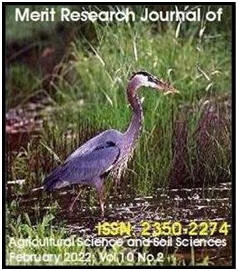
|
|
|
|
|
|
/ / MRJASSS Home / / About MRJASSS / / Submit Manuscripts / / Call For Articles / / Editorial Board / / Archive / / Author's Guide /
|
Other viewing option
Shaba
OS
|
Original Research Article Success Factors for Sustainable Tourism Planning and Management in Ondo State, Nigeria |
||
|
Oluwanifemi Seun Shaba* and Sunday Oladipo Oladeji |
|||
|
Department of Ecotourism and Wildlife Management, Federal
University of Technology, Akure. |
|||
|
Abstract |
|||
|
This study aims to identify the success factors for
sustainable tourism planning and management in Ondo State. A
multi-stage sampling procedure was used to select
respondents. Isharun cave, Ebomi Lake and Igbo Olodumare
were purposively selected to represent the Central, Southern
and Northern part of Ondo State. Well-structured
questionnaires (150) were administered to the respondents.
For the public and private stakeholders, a total of sixteen
(16) respondents were purposively selected for the in-depth
interviews. A descriptive analysis was used to analyze the
questionnaire using SPSS Data editor while data collected on
the interviews were analyzed qualitatively through thematic
analysis. The empirical results indicate that this heritage
site has built community pride (4.30) has the highest mean.
The result on the overall assessment of respondents on the
success of the sites reveals that the majority (91.3%) held
the view that sites were successful while Public Government
has the highest level of involvement in the management of
the sites (44.4%). However, there is need to achieve maximum
success if the derivable benefits from these heritage
resources are to be sustained.
|
Merit Research Journals© 2023 || Advertisement | Privacy policy.
